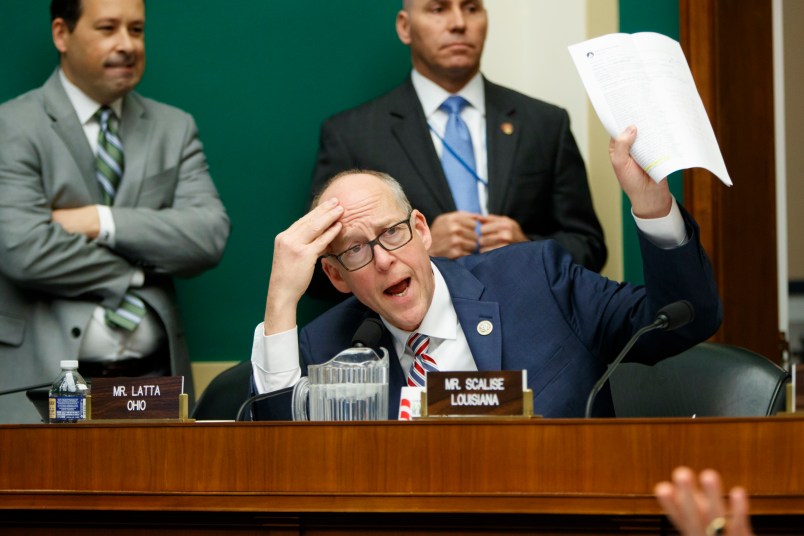More than a month after Congress allowed funding for the Children’s Health Insurance Program (CHIP) and community health centers to lapse, sending states scrambling to find emergency funding, the House of Representatives voted Friday on a bill to reauthorize the programs. Almost every Democrat voted no because the bill pays for CHIP by cutting more than $10 billion from Obamacare’s public health and prevention fund, and by raising Medicare fees for higher-income senior citizens.
The bill also cuts the grace period for people who miss a payment on their health insurance premiums from 90 days to 30, a change expected to cause about 700,000 people to lose their insurance.
The bill’s lead author, Rep. Greg Walden (R-OR), blasted Democrats Friday morning, accusing them of “voting against kids and their doctors.”
“We’re fully funding CHIP for five years. We’re fulling funding Community Health Centers for two years. We’re asking the wealthiest seniors in America to pay $135 more for their Medicare,” Walden said, casting withering looks at his Democratic colleagues preparing to vote against the measure. “How ironic. How cynical.”
Funding for the program, which covers about 9 million children nationwide, ran out at the end of September, as Republicans focused their energies on taking a series of unsuccessful votes to repeal the Affordable Care Act.
Both the House and Senate had been working in a bipartisan fashion on the CHIP reauthorization for months, but those talks broke down in the House in October when Republicans chose several controversial spending cuts to offset the cost of the program.
Speaking just before the vote, Joan Alker, the executive director of the Georgetown University Center for Children and Families and an expert on CHIP, called this partisan breakdown “discouraging and frustrating.”
“The bottom line is that they can’t get this done unless they approach it in a bipartisan way in the Senate,” Alker told TPM. “And they’re 90 percent of the way there. They actually agree on the underlying policy, which is rare right now. What other issue do they have that on, particularly in the health sphere? But they’re fighting about the offsets, which is a tiny part of the overall budget. They could find bipartisan offsets if they try. This is not a lot of money.”
Alker said the fact that Republicans chose to go after funding in the Affordable Care Act, knowing doing so would “annoy the Democrats,” suggests “that their desire to get CHIP funded is not that urgent.”
House Democrats who spoke to TPM ahead of the vote were beyond “annoyed.”
Rep. Rosa DeLauro (D-CT), jabbing her finger for emphasis, so furious she tripped over her words, said she would be proud to vote “Hell no” on the bill.
“This is robbing Peter to pay Paul,” she said. “We’re going to take from lead paint screenings and testing water and vaccinations? Take it from the money you’re giving to the richest of the rich in tax cuts. Don’t cut the prevention fund.”
Even as some states have to apply for emergency funding from the federal government and are preparing to send out notices to families that their children’s insurance may lapse, Congress is not expected to send the CHIP reauthorization to the President’s desk until December, rolled up in an end-of-the-year spending bill.
“This is no way to run government,” Alker said. “In CHIP’s 20-year history we’ve never had a situation like this where we’ve lost funding for this long.”
Alker added that even if funding is later restored, she fears families will have seen so much in the news and received so many conflicting notices about the state of the program that they won’t come back to enroll their children.
“It will have a dampening and chilling effect,” she warned. “In this environment we’re operating in, it’s not going to take a lot for families to think their health coverage has gone away.”







Robbing the poor to pay the poor.
December is going to be a mess.
Typical for the GOP, the most evil fuckers on the planet.
O/T
Heads about to explode
Bergdahl to get dishonorable discharge, lose rank, forfeit pay in addition to getting no prison time.
So incredibly unshocked.